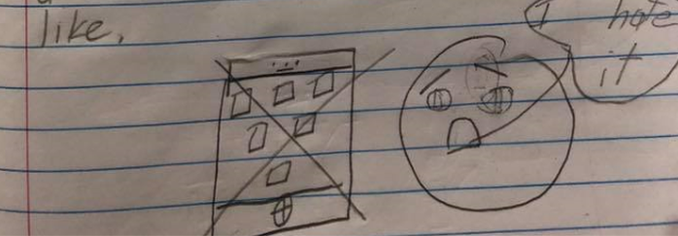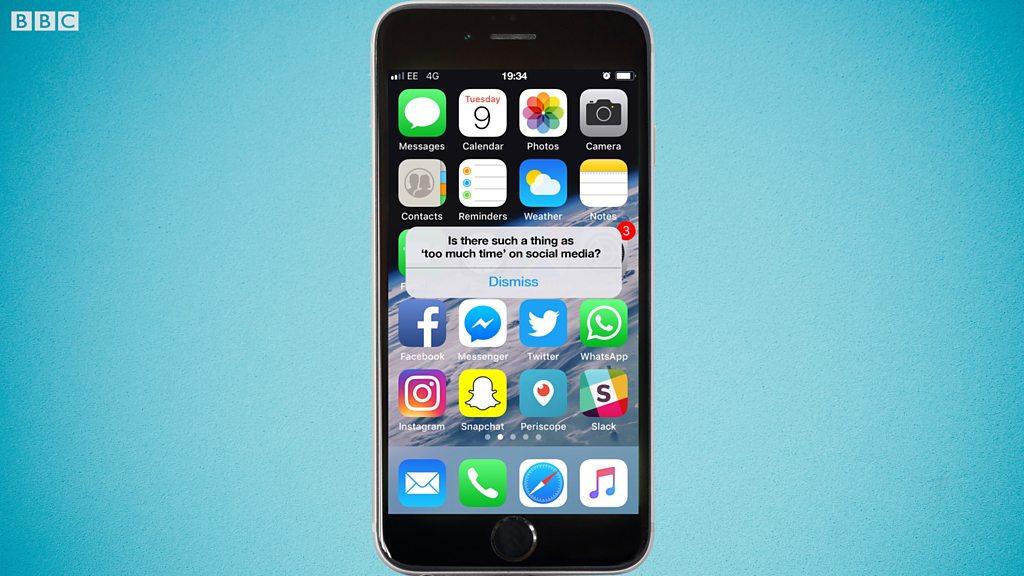I wish mum's phone was never invented
- Published

Mobile phones are bad for us. We know because every day there is a news story telling us so, or at least it can feel like that.
But no-one ever actually puts their phone down after hearing these reports, right?
What if children told you exactly how your WhatsApping, Instagramming, emailing and news-reading makes them feel?
"I hate my mum's phone and I wish she never had one," is what one primary school child wrote in a class assignment.
American school teacher Jen Adams Beason posted the comment on Facebook, and revealed that four out of 21 of her students said they wished mobile phones had never been invented.
Ms Beason, who lives in Louisiana, also posted a picture of the second grade (ages seven to eight) pupil's class work after she asked them to describe something they wish had never been created.
Allow Facebook content?
This article contains content provided by Facebook. We ask for your permission before anything is loaded, as they may be using cookies and other technologies. You may want to read Meta’s Facebook cookie policy, external and privacy policy, external before accepting. To view this content choose ‘accept and continue’.

"I would say that I don't like the phone," one child wrote.
"I don't like the phone because my parents are on their phone every day. A phone is sometimes a really bad habit."
The student completed the work with a drawing of a mobile phone with a cross through it and a large sad face saying "I hate it".
You might also be interested in:
The picture was posted last Friday and has been shared almost 170,000 times since, including by shocked parents who are stopping to think twice about their technology habits.
"Wow. Out of the mouths of babes! We are all guilty!" responded one user, Tracy Jenkins.
"Strong words for a second grader! Listen parents," added Sylvia Burton.
Another wrote, "That is so sad and convicting. Great reminder for us all to put those phones down and engage with our kids more."
Other teachers also joined the discussion to add their own experience of children's reaction to their parents' internet use.
"We had a class discussion about Facebook and every single one of the students said their parents spend more time on Facebook then they do talking to their child. It was very eye opening for me," commented Abbey Fauntleroy.
Some parents offered their personal experience of trying to address the problem.
Beau Stermer wrote that he has seen his two-year-old son reacting negatively to his use of his mobile phone: "I've noticed if he and I are playing and my phone rings for something at work, he has nothing to do with me after I get off the phone.
"It kills me. I have made an agreement with myself that if I am playing with him everything else can wait."
However, one mum pointed out that her teenagers were just as bad, often choosing their phone over family time.
A survey carried out in the US in 2017 reported that half of parents surveyed found that using technology disrupted interactions, external with their child three or more times a day, a phenomenon named "technoference".
- Published20 January 2018
